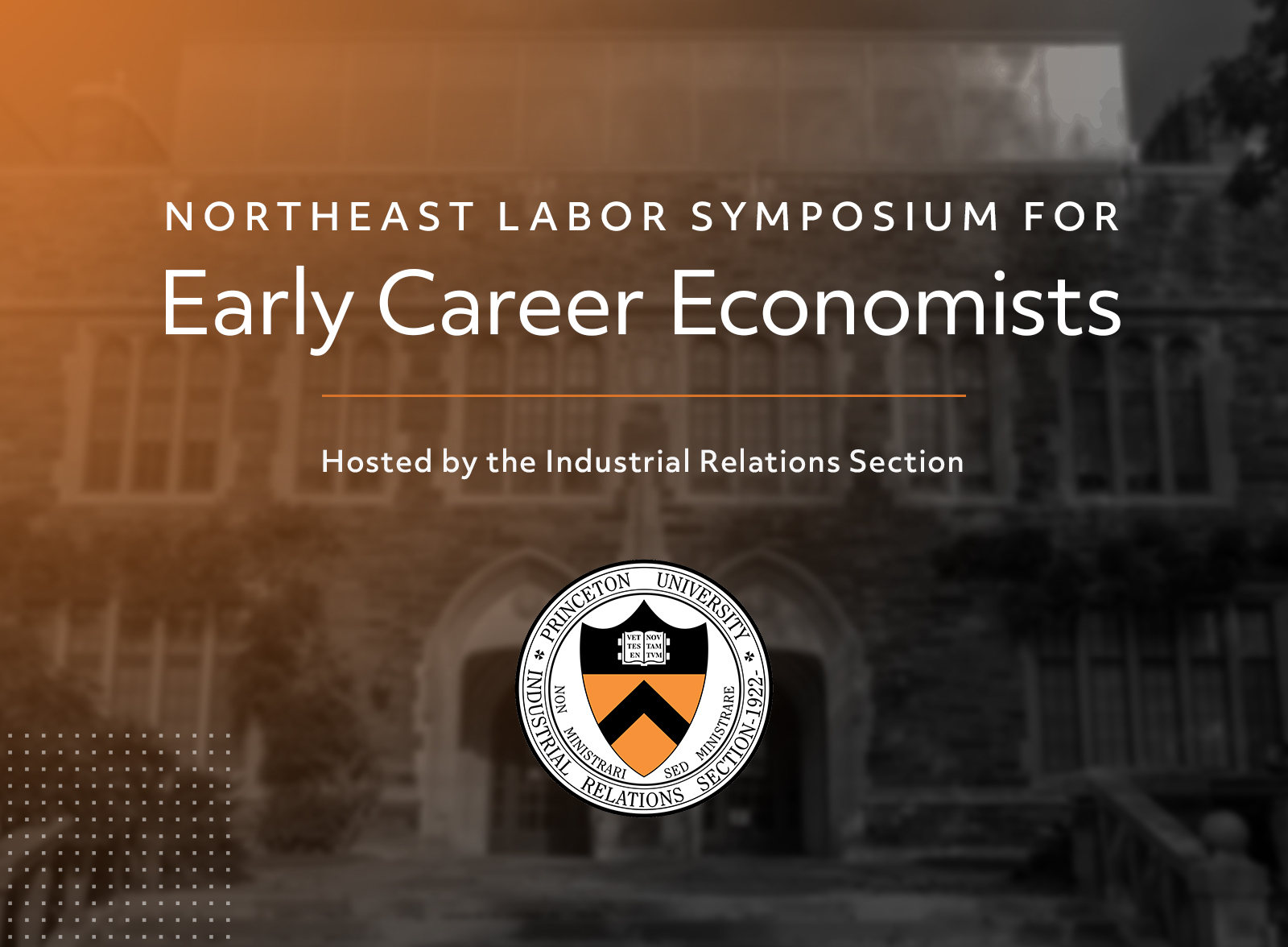For Early Career Labor Economists, a Princeton Conference Provides New Opportunities

When Princeton postdocs Jesse Bruhn, Ellora Derenoncourt, and Felix Koenig organized the first Northeast Labor Symposium for Early Career Economists (NLS-E), the goal was to bring together junior faculty who lived and worked in the region for a community-building academic workshop.
“Jesse, Ellora, and Felix envisioned the first NLS-E as a local event,” said Alexandre Mas, Director of the Industrial Relations Section at Princeton, which sponsors the event. “But with so many conferences moving online during the pandemic, our current postdocs saw an opportunity to make the event accessible to a broader group of people, and we thought this was a great idea.”
Organized this year by Princeton postdocs Lorenzo Lagos and Cody Tuttle, the 2021 NLS-E served junior researchers in the northeast corridor, but also Canada, Europe, and the UK. Taken together, participants represented 16 schools or institutions.
Here, the organizers talk about the value of a conference specifically designed for early career economists, and how the field of economics might benefit from organizing similar events in other disciplines.
The importance of research feedback from peers
For Lagos and Tuttle, one major benefit of this year’s conference was the opportunity to get feedback on their work from peers. After coming to Princeton, Lagos said, a faculty member gave him some good advice: While it’s great to present to senior faculty at big conferences, sharing your work at smaller conferences, where the stakes are lower, is important, too.
“In terms of presenting your work for feedback, it’s nice to talk to people who are in the same boat as you,” Lagos said. “It takes some of the pressure off, and lets you focus on the substance.”
“In terms of presenting your work for feedback, it’s nice to talk to people who are in the same boat as you,” Lagos said. “It takes some of the pressure off, and lets you focus on the substance.”
Another benefit? “Conferences like this are a great way to meet new co-authors,” Tuttle said. “You see people doing interesting work in your area, and can then work together on something new.”
With an open application process, anyone can join
To advertise their conference, NLS-E organizers turned to Twitter. They asked faculty members with large followings to share the announcement, and stressed that the application to present a paper was open to researchers everywhere.
Their semi-blind process for selecting papers ensured that applicants from any institution had the opportunity to participate and present, opening up networking opportunities for early career researchers at a wide range of institutions.
Growing networks and building relationships among economists was a major motivator for hosting the event, Lagos and Tuttle said, and something they think other economic disciplines could benefit from. While the NLS-E is built around research in labor economics, opportunities that cater specifically to early career economists in other disciplines are rare in nature. But with online technologies like Zoom reducing the barriers to hosting these events, they hope to see more of them.
“What participants valued most about this year’s conference was the ability to meet their peers and get real feedback on their work in a low pressure environment,” Tuttle said. “If more institutions like Princeton can use their networks to organize these events, the entire field would benefit.”
Continuing to support young economists in 2022
The Industrial Relations Section is committed to advancing the field of labor economics and providing opportunities for young researchers, especially their postdocs, to thrive.
“We are happy that this year’s conference was so well-received,” said Mas, “and we look forward to supporting future initiatives like this one.”
Sign up to receive email alerts when we publish a new working paper.